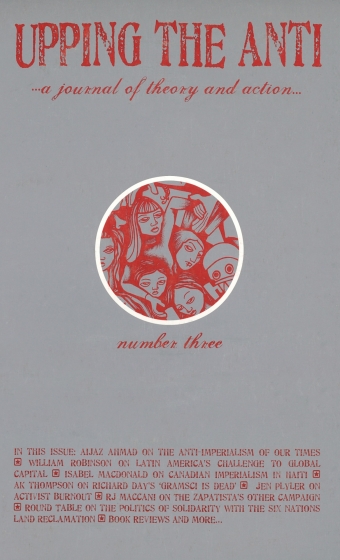Socialism From Below, A Defence
Dear UTA,
Although Tom Keefer says that his article “Marxism, Anarchism and the Genealogy of ‘Socialism from Below’” aims “to understand what the real issues are” in debates between and among Marxists and anarchists about “socialism from below” and/or “from above,” I don’t think it succeeds.
This is a pity, since, in my view, clarifying the history behind these issues, and discussing them in a non-dogmatic, non-sectarian way from the vantage point of capitalist society and social struggles today as well as what we learn from history is much more important than what most of the article is about: what Hal Draper wrote in the pamphlet The Two Souls of Socialism in the early 1960s and David McNally wrote in the 1980 and 1997 editions of the pamphlet Socialism from Below (especially since Draper is dead, and McNally’s views have changed – a fact buried in an endnote in Keefer’s article).
The conclusion of the article touches on some of the most important issues. “How the struggle from below is understood as unfolding and how its structures and institutions are conceived and articulated” is crucial. This is what needs to be clarified and rethought.
In doing this, we need to draw above all on the critical materialist study of real movements, struggles and social relations past and present. This is a lot harder to do than reading Marx, Bakunin or whoever, but it’s also more important. I think it’s also the only way to do what Keefer claims his article sets out to do.
Faced with the ecological and social crises that capitalism has unleashed, the anti-capitalist left really needs to develop greater clarity through non-sectarian dialogue (especially in the US and the Canadian state, where we are so very weak, marginal and fragmented). Shifting our focus to the dynamics of capitalism, systems of oppression and social struggles against them, and looking at the ideas of revolutionary thinkers in relation to these, will help cut through the ideological mists, the many labels and words that today so often get in the way of us clarifying our thinking and our areas of agreement and disagreement.
A letter can’t possibly respond to the contents of Keefer’s article in detail, so I’ll limit myself to saying that, as I see it, “socialism from below” can sometimes be an unhelpful term, defined narrowly or wielded in a sectarian way – but then so can other terms (for example, libertarian socialism).
Draper’s argument that there are “two souls of socialism” – socialism from below, based on the self-emancipation of the working class, and socialism from above, whose various versions all substitute the actions of a minority (party, armed fighters, radical activists…) for self-organized mass struggles – was insightful.
However, some delineations of the pluralist tradition of socialism from below have been problematic (excluding anarchist supporters of working class socialist democracy, and some Marxists). And, ultimately, the socialism from above/socialism from below concept can’t do justice to all the dimensions of radical politics.
I will also add that when re-reading Keefer’s article I was struck by its sweeping claim about socialist organizations: “cultism, bureaucratization and reformism have ossified and destroyed virtually every such grouping that has been able to amass more than a handful of members.”
Wow! Of course, in societies organized by exploitation, oppression and alienation there are powerful social forces that distort far left organizations. But those who really believe that “virtually every” far left group with more members than could fit around a kitchen table became reformist, hopelessly bureaucratic or a cult are basically saying, in the words of the British socialist Tommy Jackson:
We are the pure selected few / And all the rest are damned / There’s room enough in hell for you / We don’t want heaven crammed.
Sebastian Lamb
Winnipeg, Manitoba

